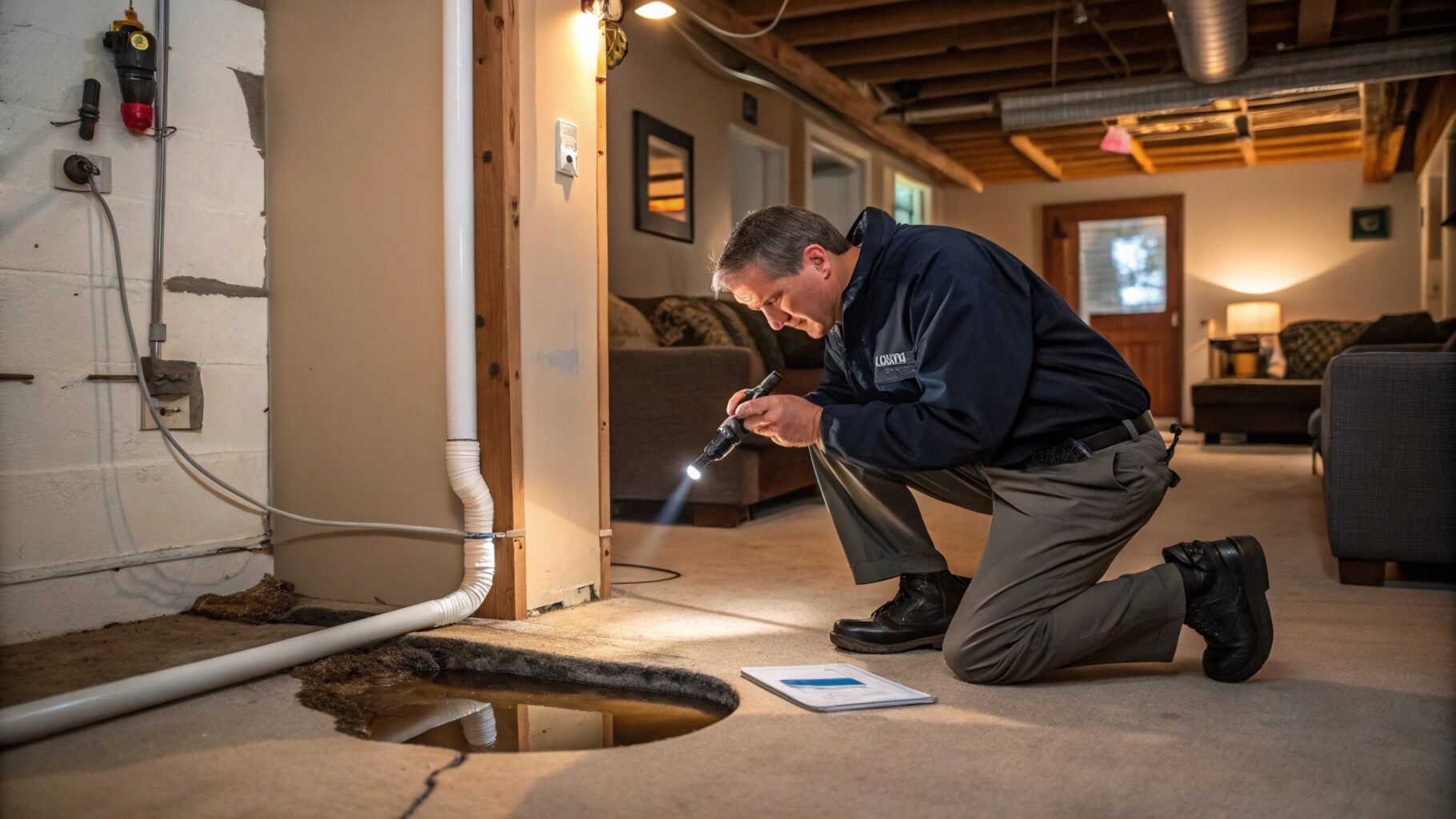
One of the main reasons to get a home inspection before buying is to avoid expensive repairs later. Small issues like plumbing leaks or faulty wiring may not seem like a big deal, but they can quickly escalate into major problems.
As Michael Hill, a professional inspector with decades of experience, says, “You don’t want to be surprised by a major repair right after moving in. Something as small as a water leak, if left unchecked, can lead to thousands of dollars in damage.”
Example: A simple plumbing issue hidden under the floor could end up costing you thousands if it turns into a full-blown water damage situation. Better to catch it early with a professional inspection.
A home can look picture-perfect on the outside, but that doesn’t mean everything is running smoothly behind the scenes. An inspection gives you an honest, unbiased view of the home's condition.
During his inspections, Michael Hill emphasizes the importance of documenting both what’s visible and what’s hidden. “We crawl under houses, we check crawl spaces, foundations, and attics—areas most buyers never even think to look at,” says Hill.
This attention to detail ensures that you're fully aware of any issues that need addressing. No matter how small they seem, knowing them upfront can save you from future stress.
If an inspection uncovers significant issues, you can use this as leverage in your negotiations. Sellers may be willing to lower the asking price or agree to make repairs before closing the deal.
Michael Hill mentions how he’s seen buyers save thousands by using their inspection reports as a negotiation tool. “Sellers don’t want to lose a deal, especially if the market is competitive,” he says. “Once they know you’ve had the place inspected, they’re more likely to compromise.”
This could be anything from fixing a leaking roof to addressing issues with the electrical system—problems that could cost you heavily if left unresolved.
Some home issues aren't just costly—they can be downright dangerous. A home inspection can uncover hidden hazards, such as faulty electrical systems, gas leaks, or mold growth, that pose serious health and safety risks.
”We're not just looking at how nice a place looks—we're focusing on the bones of the home and the potential hazards that could affect your family’s safety,” explains Hill. A faulty wiring system, for instance, can increase the risk of electrical fires, while unchecked mold growth can lead to respiratory issues.

Even if your inspection doesn’t uncover any major issues, it will help you plan for future maintenance. The home inspector will give you an idea of the life expectancy of the property’s systems, such as the roof, HVAC, and plumbing.
Hill often advises his clients to think long-term. “It’s not just about what needs fixing today. You also need to know what might need replacing in five or ten years,” he says. “We help buyers understand the full picture so they can budget accordingly.”
A home inspection helps ensure that the property meets local building codes. This is especially important if the home has had recent renovations or additions that may not have been properly permitted.
“We check to make sure the home complies with local standards, which can vary depending on the city or county,” Hill notes. “Unpermitted work can lead to fines and additional expenses, which you definitely want to avoid.”
Perhaps one of the most important reasons for a home inspection is peace of mind. Knowing that a professional has thoroughly checked the property gives you confidence that you’re making a sound investment.
“I always tell my clients that we’re here to protect their investment,” Hill says. “A home is a huge financial commitment, and you want to know you’re getting what you’re paying for.”
A home inspection helps ensure that the property meets local building codes. This is especially important if the home has had recent renovations or additions that may not have been properly permitted.
“We check to make sure the home complies with local standards, which can vary depending on the city or county,” Hill notes. “Unpermitted work can lead to fines and additional expenses, which you definitely want to avoid.”

A home inspection ensures you're fully aware of any issues, helping you avoid costly repairs and giving you peace of mind about your investment.
A home inspector examines key components of the property, including the foundation, roof, plumbing, electrical systems, and more to ensure everything is in good working order.
It’s never wise to skip a home inspection, even if the house looks perfect. Hidden issues like plumbing leaks or electrical hazards can turn into major problems later on.
The cost varies depending on the location and size of the home but typically ranges between $300 and $500. It’s a small price to pay for the peace of mind it offers.
Home inspectors provide a thorough examination, but they can’t predict everything. If an issue was clearly outside the scope of the inspection, liability may not apply.
Yes, most buyers use the inspection report to negotiate repairs or a price reduction with the seller.